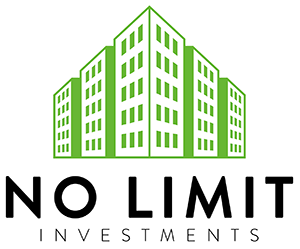Investing in real estate with a poor credit history might seem impossible at first glance. Many people assume that without a perfect credit score, their dreams of property ownership or investment are out of reach. The truth, however, is far more encouraging. With the right financing approach, a clear plan, and support from a trusted financial partner, investors can secure real estate financing with bad credit and still create long-term success.
This guide explains how to overcome credit challenges, identify the right loan options, improve your approval chances, and build a profitable portfolio through strategic financing opportunities available for today’s investors.
What Does Bad Credit Mean for Real Estate Investors?
When we talk about bad credit, we usually refer to a credit score that falls below the “good” range, typically under 650. For real estate investors, this may raise red flags with traditional lenders, who often see creditworthiness as the main measure of financial reliability. However, a lower score does not automatically mean the end of your investment goals.
In real estate financing, lenders also consider several other factors beyond your credit score, such as income potential, asset value, cash flow, and investment experience. Understanding these broader criteria allows investors to explore opportunities outside the conventional lending system.
Having bad credit means you must be more strategic, but it also opens doors to alternative funding methods and partnerships that prioritize property performance and equity potential rather than past financial mistakes.
Why Is Real Estate Financing Still Possible With Bad Credit?
Even with a low credit score, many investors find success through financing models that focus on property performance rather than personal history. Traditional lenders may hesitate, but specialized institutions and investment-focused financing firms view things differently.
These organizations often look at the potential profitability of your investment project. For example, a rental property generating consistent income can make you a strong candidate even if your credit isn’t perfect. Some lenders prioritize factors like the property’s value, expected cash flow, and your ability to manage or renovate effectively.
Partnering with experienced professionals who understand the structure of investor-focused financing, like those at No Limit Investments, can help guide you toward programs designed to accommodate your situation. It is not just about securing a loan; it’s about matching the right financing model to your goals.
What Loan Options Can Help You Get Started Despite Poor Credit?
When facing credit challenges, you must explore multiple lending paths tailored to real estate investors. Below are several financing options that remain accessible, even for those with less-than-ideal credit histories:
Fix & Flip Loans
These short-term loans are designed for investors who buy, renovate, and sell properties. Approval often depends more on the project’s profitability and timeline than on credit score alone.
Buy & Hold Mortgages
For long-term investors, rental income can serve as a strong compensating factor. Lenders may approve financing if the property demonstrates consistent cash flow and market value growth.
BRRRR Financing (Buy, Rehab, Rent, Refinance, Repeat)
This powerful model allows you to acquire undervalued properties, rehab them, rent them out, and refinance based on their improved value. It is ideal for investors who need flexibility and want to build momentum despite poor credit.
Cash-Out Refinance
If you already own property, you can leverage built-up equity to fund additional investments. This strategy helps generate capital for future deals without relying solely on your credit score.
DSCR Loans (Debt Service Coverage Ratio)
DSCR loans focus on the income potential of the property rather than your personal income or credit history. A property with strong rental performance can qualify on its own merit.
New Construction Loans
Investors looking to develop or build can qualify for financing based on project viability, construction plans, and market analysis, even with credit challenges.
Real Estate Financing Solutions and Business Credit Facilities
Flexible financing arrangements can be structured to match your investment goals. Some programs help you access capital through your business entity rather than personal credit.
Credit & Debt Advisory and Growth & Development Services
Working with professionals who offer credit and debt advisory can improve your long-term financial profile while you continue investing. Growth and development services also help you scale your portfolio strategically as your credit recovers.
How Can You Improve Your Chances of Loan Approval With Bad Credit?
Improving your approval odds involves preparation and strategy. Lenders want to see responsibility and forward planning, even if your past shows financial hardship. Consider these key steps:
- Review Your Credit Report: Identify errors or outdated information that may be lowering your score and dispute inaccuracies.
- Pay Down Debts: Reducing outstanding balances demonstrates responsible credit use and lowers your debt-to-income ratio.
- Show Consistent Income: Lenders appreciate predictable income streams, even if from rental properties or business ventures.
- Offer a Higher Down Payment: The more you invest upfront, the less risk the lender assumes.
- Present a Solid Investment Plan: A clear business plan showing your strategy, cash flow projections, and market data strengthens your credibility.
- Work With Expert Advisors: Partnering with a professional team that provides real estate financing solutions and credit & debt advisory ensures you meet requirements efficiently.
By focusing on what you can control, your financial behavior, savings discipline, and documentation, you can significantly increase your chances of success.
What Role Do Alternative Loan Programs Play in Real Estate Financing?
Alternative loan programs are essential for investors who may not qualify through traditional banks. These programs offer flexibility in qualification requirements and underwriting methods.
Some prioritize property income over personal credit, while others allow you to use business credit or assets as collateral. DSCR loans, for instance, look at whether your rental income can cover loan payments rather than your credit history. Similarly, fix & flip loans rely heavily on the after-repair value (ARV) of a property instead of your financial past.
No Limit Investments provides these alternative options, giving investors the chance to advance even when their personal credit history poses a challenge. By leveraging creative lending programs, you can begin building experience, improve your credit over time, and unlock better terms in the future.
How Can You Leverage No Limit Investments’ Services for Long-Term Success?
Partnering with No Limit Investments can transform how you approach financing. Their comprehensive suite of services is designed to meet investors where they are, whether you’re repairing credit or scaling an existing portfolio.
They offer Fix & Flip Loans for short-term investors who want to increase property value quickly, Buy & Hold Mortgages for long-term rental growth, BRRRR Financing for scalable strategies, and DSCR Loans that prioritize cash flow over credit.
In addition, their Credit & Debt Advisory and Business Credit Facilities provide personalized financial guidance to improve your credit health and secure funding under your business entity. Combined with Growth & Development Services, you gain the long-term direction necessary to expand strategically while managing risk responsibly.
With these integrated options, No Limit Investments positions you to grow consistently—even if you start from a challenging credit position.
What Financial Habits Help Maintain Investment Momentum?
Building a portfolio is not just about securing financing; it’s about maintaining strong financial habits. Good management ensures that each property continues to perform and that your credit strengthens over time.
- Maintain Accurate Records: Keep detailed documentation of income, expenses, and repairs.
- Build Emergency Reserves: Have cash set aside for vacancies or unexpected costs.
- Monitor Your Credit Regularly: Consistent credit monitoring helps you track improvements and prevent surprises.
- Reinvest Profits Wisely: Use gains from successful flips or rentals to fund your next acquisition.
- Refinance When Ready: Once your credit improves, refinance for better rates and terms.
- Separate Personal and Business Finances: Leverage business credit facilities to protect personal credit and streamline accounting.
- Diversify Your Portfolio: Spread investments across property types or locations to minimize risk.
These habits build credibility and stability, two qualities lenders value most.
What Does Building a Profitable Portfolio Look Like With Bad Credit?
Imagine starting small, focusing on one or two manageable projects, and steadily expanding as your financing options improve. A common progression might look like this:
- Begin with a fix & flip loan to generate capital quickly.
- Transition to buy & hold or BRRRR financing as you establish cash flow.
- Leverage DSCR loans and cash-out refinancing to scale into multiple properties.
- Use business credit facilities to separate and strengthen your financial foundation.
- Partner with experienced financing advisors to build a solid track record.
This gradual approach allows you to grow at a sustainable pace while improving your credit profile and accessing more competitive lending options over time.
Why Should You Act Now?

Delaying your investment journey because of bad credit only prolongs missed opportunities. Real estate remains one of the most effective vehicles for wealth creation and the sooner you begin, the sooner compounding works in your favor.
No Limit Investments offers tailored programs, advisory services, and financing solutions that help investors overcome challenges and focus on growth. Whether you need help structuring your first deal or scaling your portfolio, the expertise and flexibility available today make now the ideal time to act.
Final Thoughts
Securing real estate financing with bad credit is not only possible, it’s practical when you know where to look and how to prepare. By understanding your options, improving your financial habits, and partnering with a trusted advisor like No Limit Investments, you can build a portfolio that grows stronger with each deal.
Success in real estate isn’t defined by where you start but by how strategically you move forward. With the right guidance, discipline, and persistence, bad credit can become the foundation for a powerful investment comeback story.
Works Cited
Credit Requirements for FHA Loans. FHA.com.
FHA Loans for Bad Credit Scores. Freedom Mortgage.
How DSCR Loans Work for Real Estate Investors. GetWaltz.
What Is Debt Service Coverage Ratio (DSCR) in Real Estate? JPMorgan Insights.
DSCR Loans: Unlocking Real Estate Investment. Alcova.
How to Buy a House With Bad Credit. Experian Blog.
First-Time Homebuyers Credit 101 Brochure. HUD.gov.
Buying a Home. HUD.gov.
Frequently Asked Questions
- What credit score is considered “bad” for real estate investing?
Generally, a credit score below 650 is viewed as less favorable by traditional lenders. However, investors can still qualify for real estate financing by leveraging alternative programs that emphasize property performance and cash flow over credit score. The key is working with lenders who understand investment-based underwriting rather than standard consumer lending practices.
- Can I still qualify for a DSCR loan with bad credit?
Yes. DSCR (Debt Service Coverage Ratio) loans are specifically designed for investors whose properties generate reliable income. Lenders using DSCR criteria focus on whether rental income can cover the property’s debt obligations instead of relying solely on your personal credit. A strong-performing rental property can help you qualify even with a lower score.
- How do Fix & Flip Loans differ from Buy & Hold Mortgages?
Fix & Flip Loans are short-term, asset-based loans that help investors purchase and renovate properties for quick resale. In contrast, Buy & Hold Mortgages are long-term loans designed for rental income generation. The key difference lies in the investment objective: flipping for fast profit versus holding for sustained cash flow and appreciation.
- How can business credit facilities help investors with poor credit?
Business credit facilities allow investors to access funding under their business entity rather than personal credit. This separation helps protect your personal credit profile while enabling the business to build its own financial reputation. Over time, responsible use of business credit can strengthen your overall borrowing capacity and unlock larger financing opportunities.
- Why should I consider partnering with a financing firm like No Limit Investments?
A partner like No Limit Investments provides tailored real estate financing solutions for investors with varying credit backgrounds. They offer fix & flip loans, BRRRR financing, DSCR loans, and credit & debt advisory designed to align with your goals. Their professional expertise ensures you receive structured financing and long-term support, helping you turn credit challenges into real investment progress.







